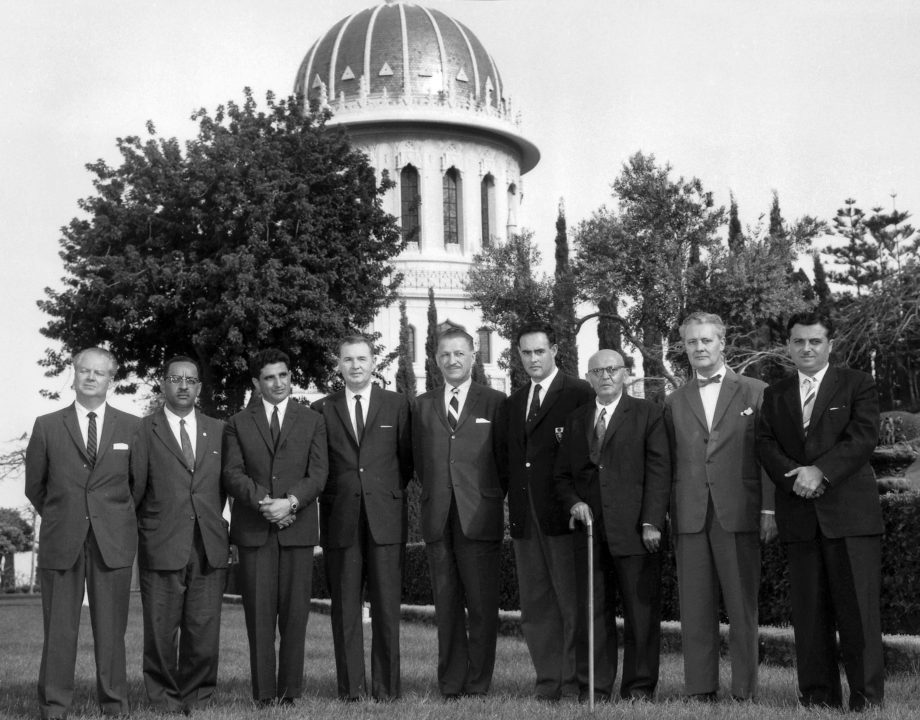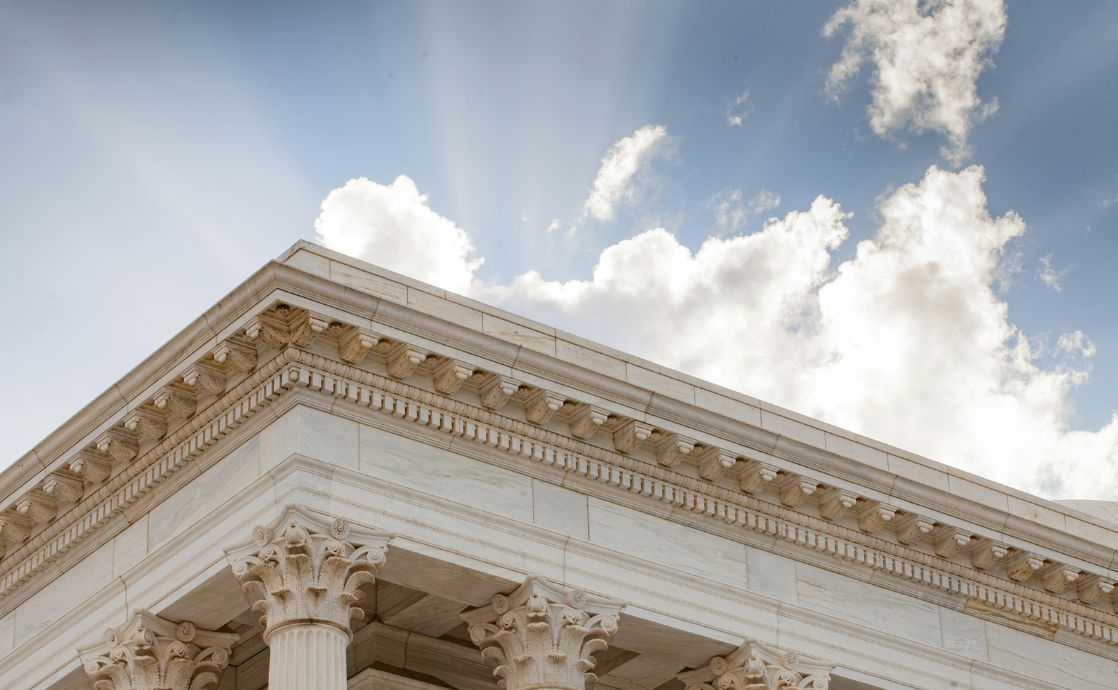The views expressed in our content reflect individual perspectives and do not represent the authoritative views of the Baha'i Faith.
Comprehending the unique Baha’i administration means understanding the men and women who take part in it — not just to establish historical facts and system paradigms, but to examine human motivation.
This kind of knowledge is not knowledge of logical truths, nor the knowledge of how to do things, nor even the knowledge nurtured by belief. It is more like the knowledge we claim of a friend, of his or her character, of his or her ways of thought and action, the intuitive sense of personality and feeling.
RELATED: What Is the Universal House of Justice?
It is individuals, men and women, youth and children, that have made the Baha’i world — its unprecedented unity, its widespread global presence, its embryonic institutions, its pioneering community service — all building a unique administrative order out of the external, corporeal world of human effort. This unparalleled, democratically-elected Baha’i administrative system, without clergy or ecclesiastical orders, without political parties or partisanship of any kind, is characterized in this way in the Baha’i writings:
The Most Holy Book is the Book to which all peoples shall refer, and in it the Laws of God have been revealed. Laws not mentioned in the Book should be referred to the decision of the Universal House of Justice. …
Should there be differences of opinion, the Supreme House of Justice would immediately resolve the problems. Whatever will be its decision, by majority vote, shall be the real truth, inasmuch as that House is under the protection, unerring guidance, and care of the one true Lord. … The Supreme House of Justice should be elected according to the system followed in the election of the parliaments of Europe.
And when the countries would be guided the Houses of Justice of the various countries would elect the Supreme House of Justice. At whatever time all the beloved of God in each country appoint their delegates, and these in turn elect their representatives, and these representatives elect a body, that body shall be regarded as the Supreme House of Justice.
Philosophers and theologians have dreamed about a democratically-run religion for centuries, and now the world has one in the Baha’i Faith.
To better understand this subject means understanding the members of the Universal House of Justice; after all, the plausibility of Baha’i administration rests upon the possibility of having exemplary members, and much of the esteem of institutions springs from the way they are enacted. Moreover, loyalty and talent are important in organizing Baha’i administrative bodies and in explaining institutional coherence. Focusing on members’ lives, therefore, is entirely relevant — although the Baha’i community knows that there are no Baha’i leaders in the sense of individual authority. The leader principle cedes to the collegial principle as the bedrock of Baha’i administration.
Upon meeting these members of the House of Justice, the most striking impression, the one that remains, is how human imperfection is preserved and displayed on the public stage. No attempt is ever made to boast moral attributes or to imitate virtue. Affectations of sanctity or pretense to mystical knowledge may be the favorite means of advertisement in the sham spirituality of the medieval cloister or of modern creeds, but in this unique membership, human virtue is compressed, not in the flourishing company of ‘wit or worth’ but in another pair of attributes, of the vulnerable and forgotten kind — humility and unconditional love, a love given freely and forgivingly. It is flaws, not hypocrisy, that triumph.
Rather than cast a shade on the Faith they profess, such shortcomings are the particular terms of endearment of these members of the Universal House of Justice.
After they are elected once every five years, there is no pomp or special robe to enhance ceremonial rank, no headdress to announce protocol, no artificial redolence to flatter personal connection, no kissing of hands, no booming sermon behind the pulpit, no ornamental embroidery to drape ecclesiastical superintendence, no braying of canticles by rote. In the presence of the Universal House of Justice members, any air of mutual satisfaction is non-existent, without false estimates of character to betray ambition and free of vestiges of supremacy. The legitimacy of these members does not depend on their title but on a position that rests on the permanent assurance of Baha’u’llah that “God will verily inspire them with whatsoever He willeth …”
This unique office emancipates the Universal House of Justice members from holding any opinion of their own rectitude or from trading personifications of perfection or pitching penitence. Instead, the repercussions of their solemn obligation exercises them in the habits of humility, meekness, and patience.
RELATED: Hope for the World: The Universal House of Justice

Such are my perceptions, but infinitely more worthwhile and valuable it is to hear directly from one who had the inestimable honor of serving the Universal House of Justice the longest, the now-deceased Baha’i Ian Semple. He writes in his diary:
Hushmand [Fatheazam] returned from a visit to England on 29th January 1967, bringing to nine the number of [Universal House of Justice] members present in the Holy Land. I note a comment in my diary at that time which I think is important. I wonder if this first Universal House of Justice is especially blessed, or if this love and harmony among the members will always continue? In a sense it has been a little like a love affair. The first incomparable days and months when we were all overwhelmed and were bound together in an ecstatic affection, ignorant though most of us were of one another’s natures, helplessly relying on the guidance of God for what the future would reveal. Now, after nearly four years [1967] we all know one another so much better, both our virtues and capacities and our faults and shortcomings. The early rapture only recurs from time to time, but its place has been taken by a profound respect and love for one another — each one knowing the others and knowing that others know him — yet for all our human frailties, for all our bygone strongly held disagreements in consultations — no barrier has been raised between any two of us. I can see, as I observe my fellow- members, how they are growing in spiritual stature, understanding and breadth of vision; and I know how I myself have grown and how I am even now aware of so many faults of which I must rid myself.
Time and again we stumble, but each time we pick ourselves up and strive once more to be worthy of the high calling which our fellow believers have thrust upon us. Now, thirty years since I wrote those words, I can testify that the same spirit still exists, and has persisted through all the vicissitudes and changes of membership which those years have seen.
It is the genius of Baha’u’llah’s world order that the genuine humility of its serving administrators in this legalistic landscape of rule and order, rank and hierarchy, ensures that no one seeks favor or celebrates fame. That timeless eschatological promise — the coming of the Promised One — now enshrines an ethos of loving service amongst its followers.
This article is adapted from the book “The Last Refuge: Fifty Years of the Ministry of the Universal House of Justice” by Shahbaz Fatheazam.
















Comments
Sign in or create an account
Continue with Googleor